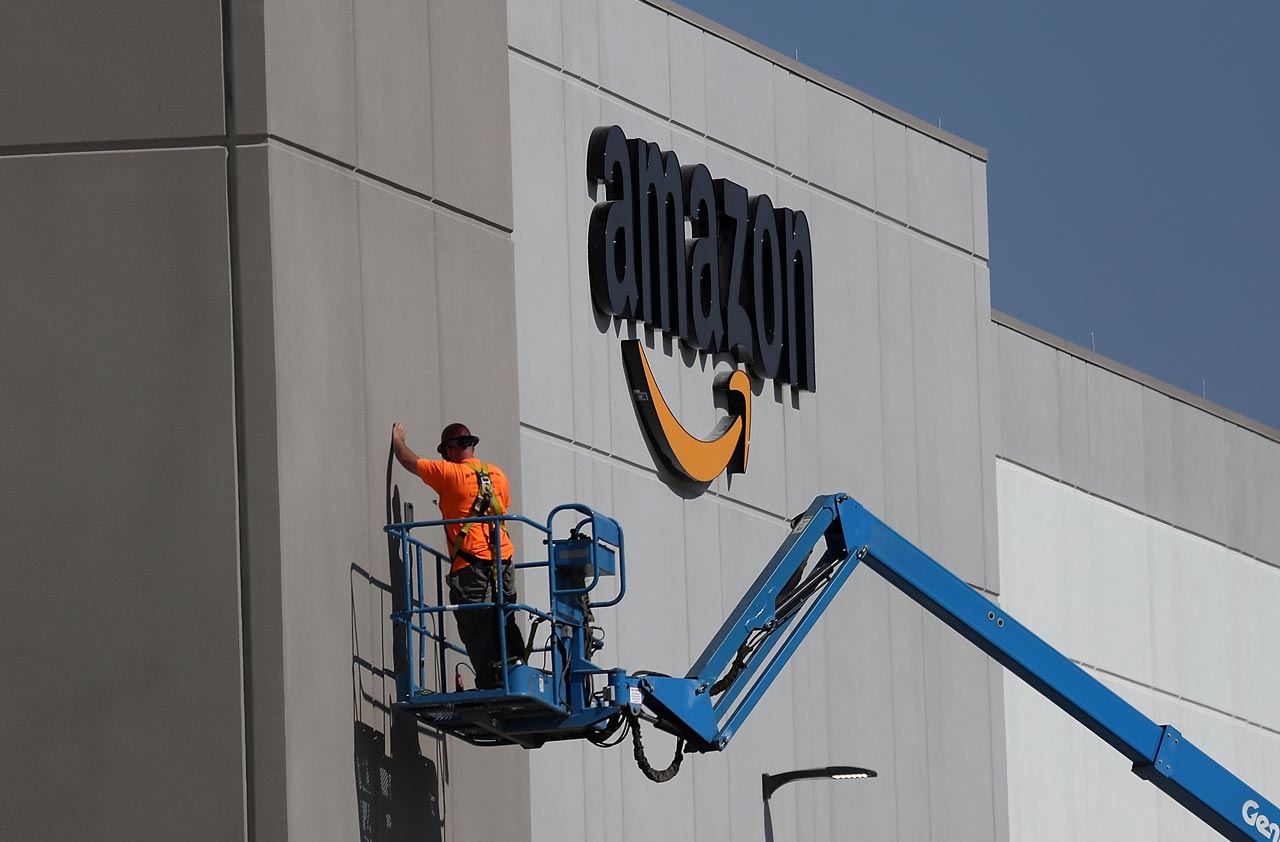How Can We Discourage Bogus News Stories?
Only the big online advertising networks can cut off the lifeblood and reduce the financial incentive to create phony stories.


Profit and prosper with the best of Kiplinger's advice on investing, taxes, retirement, personal finance and much more. Delivered daily. Enter your email in the box and click Sign Me Up.
You are now subscribed
Your newsletter sign-up was successful
Want to add more newsletters?

Delivered daily
Kiplinger Today
Profit and prosper with the best of Kiplinger's advice on investing, taxes, retirement, personal finance and much more delivered daily. Smart money moves start here.

Sent five days a week
Kiplinger A Step Ahead
Get practical help to make better financial decisions in your everyday life, from spending to savings on top deals.

Delivered daily
Kiplinger Closing Bell
Get today's biggest financial and investing headlines delivered to your inbox every day the U.S. stock market is open.

Sent twice a week
Kiplinger Adviser Intel
Financial pros across the country share best practices and fresh tactics to preserve and grow your wealth.

Delivered weekly
Kiplinger Tax Tips
Trim your federal and state tax bills with practical tax-planning and tax-cutting strategies.

Sent twice a week
Kiplinger Retirement Tips
Your twice-a-week guide to planning and enjoying a financially secure and richly rewarding retirement

Sent bimonthly.
Kiplinger Adviser Angle
Insights for advisers, wealth managers and other financial professionals.

Sent twice a week
Kiplinger Investing Weekly
Your twice-a-week roundup of promising stocks, funds, companies and industries you should consider, ones you should avoid, and why.

Sent weekly for six weeks
Kiplinger Invest for Retirement
Your step-by-step six-part series on how to invest for retirement, from devising a successful strategy to exactly which investments to choose.
Q. I’m troubled by the proliferation of fake news on the internet. I read that the fabricators of these stories have made millions in ad revenue from Google, Facebook and other online advertising networks, based on the traffic the bogus stories generate. What’s being done to stop this?
A. Fortunately, a lot is being done—belatedly. Ad revenue is the lifeblood of internet publishing, and fake-news mills—employing writers who dream up and churn out outrageous fiction—have been set up simply to tap into a multibillion-dollar ad market. Their made-up stories (with “click bait” headlines) go viral on social media, shared by thousands of web readers who believe them to be true. This traffic triggers ad placements from automated “programmatic advertising” engines used by Google, Facebook and independent online advertising networks. These companies enable the fake-news boom and generate millions in revenues for themselves. Only they can cut off the lifeblood and reduce the financial incentive to create phony stories.
Google says it does not place its marketing clients’ ads on sites that allow violent content, hate speech or pornography, and now it says it will include fake-news sites in its ad ban and also try to keep bogus stories out of its news feeds. Facebook also announced recently it will not place ads on fake-news sites, but gullible Facebook users will still be free to share bogus stories with their friends.
From just $107.88 $24.99 for Kiplinger Personal Finance
Become a smarter, better informed investor. Subscribe from just $107.88 $24.99, plus get up to 4 Special Issues

Sign up for Kiplinger’s Free Newsletters
Profit and prosper with the best of expert advice on investing, taxes, retirement, personal finance and more - straight to your e-mail.
Profit and prosper with the best of expert advice - straight to your e-mail.
Meanwhile, large national advertisers—always concerned about projecting a positive image for their brands—are putting pressure on social media companies and online media-buying networks to guarantee that their ads don’t appear on fake-news websites or next to bogus stories. Accomplishing this will require a combination of computerized and human monitoring to identify the fraudulent sites, and it won’t be easy. And remember: Curtailing the ad dollars won’t stop fake news that is created not primarily for financial gain, but for ideological purposes—to inflame partisan passions and influence public opinion.
Have a money-and-ethics question you'd like answered in this column? Write to Editor in Chief Knight Kiplinger at ethics@kiplinger.com.
Profit and prosper with the best of Kiplinger's advice on investing, taxes, retirement, personal finance and much more. Delivered daily. Enter your email in the box and click Sign Me Up.

Knight came to Kiplinger in 1983, after 13 years in daily newspaper journalism, the last six as Washington bureau chief of the Ottaway Newspapers division of Dow Jones. A frequent speaker before business audiences, he has appeared on NPR, CNN, Fox and CNBC, among other networks. Knight contributes to the weekly Kiplinger Letter.
-
 Nasdaq Leads a Rocky Risk-On Rally: Stock Market Today
Nasdaq Leads a Rocky Risk-On Rally: Stock Market TodayAnother worrying bout of late-session weakness couldn't take down the main equity indexes on Wednesday.
-
 Quiz: Do You Know How to Avoid the "Medigap Trap?"
Quiz: Do You Know How to Avoid the "Medigap Trap?"Quiz Test your basic knowledge of the "Medigap Trap" in our quick quiz.
-
 5 Top Tax-Efficient Mutual Funds for Smarter Investing
5 Top Tax-Efficient Mutual Funds for Smarter InvestingMutual funds are many things, but "tax-friendly" usually isn't one of them. These are the exceptions.
-
 Should Nondisclosure Agreements Be Banned in Sexual Harassment Settlements?
Should Nondisclosure Agreements Be Banned in Sexual Harassment Settlements?Business Costs & Regulation Knight Kiplinger offers his advice on how companies can improve their handling of harassment problems.
-
 Are Incentives to Lure New Businesses Fair to Current Employers?
Are Incentives to Lure New Businesses Fair to Current Employers?Business Costs & Regulation Job growth and spending at an existing firm should be worth just as much in incentives as new jobs and capital investment brought in from outside.
-
 Should Employers Be Barred From Asking Job Applicants What They Earn?
Should Employers Be Barred From Asking Job Applicants What They Earn?business The effort to ban the “What are you earning?” question is part of a broader movement to make all compensation totally transparent.
-
 Should Minor-League Ballplayers Get a Big Pay Raise?
Should Minor-League Ballplayers Get a Big Pay Raise?business Pro athletes must keep their bodies and skills in shape 12 months a year, and all should be paid accordingly.
-
 What Should Doctors and Drugmakers Do to Stop Painkiller Addiction?
What Should Doctors and Drugmakers Do to Stop Painkiller Addiction?business Physicians and dentists need mandatory pain-management training, starting in medical and dental schools and continuing thereafter.
-
 Should My Neighbor Be Allowed to Turn His House Into a Short-Term Rental?
Should My Neighbor Be Allowed to Turn His House Into a Short-Term Rental?real estate It's a debate that is raging in all of America’s major cities.
-
 Should a Criminal Record Rule Out a Job Applicant?
Should a Criminal Record Rule Out a Job Applicant?business The goal is an appropriate balance between fairness to job applicants and the employer’s right—indeed, legal obligation—to create a workplace that is safe for employees, customers and business interests.
-
 How Much Notice Should You Give Your Boss When You Quit?
How Much Notice Should You Give Your Boss When You Quit?business Is quitting without giving your boss notice unethical?